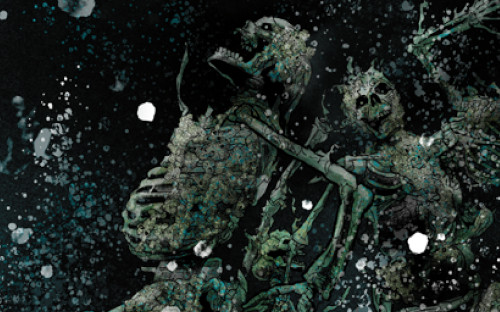
This time, Jason introduces us to his former student Dan Tappan‘s first Kickstarter project, a nautical horror anthology with the appropriately horrifying title A Lungful of Brine. Tim joins him for a review.
Podcast: Play in new window | Download

This time, Jason introduces us to his former student Dan Tappan‘s first Kickstarter project, a nautical horror anthology with the appropriately horrifying title A Lungful of Brine. Tim joins him for a review.
Podcast: Play in new window | Download

In a world where a pandemic is causing people’s organs to fail, the company that makes synthetic organs wields a lot of power – especially if the patient doesn’t have the funds to pay for the surgery. In this episode, writer Jason McNamara joins Tim to talk about Duplicant, from Karla Nappi, Marianna Strychowska, Carlos M. Mangual, Josh Reed, Leila Del Duca, and Owen Gieni.
Podcast: Play in new window | Download
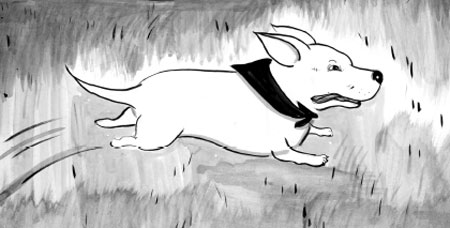
This week, Nicole Georges talks about her latest book, Fetch: How a Bad Dog Brought Me Home. Was her dog Beija really such a difficult dog, or was it all in Nicole’s mind? Also the prevalence of autobio comics, the public perception of comics in general, where the zine scene is today, and much more.
Podcast: Play in new window | Download
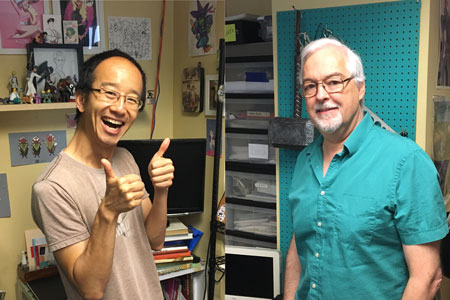
This week we wrap up both Tim’s visit to Heliscope Studio in Portland, and the whole three-month string of episodes from Tim’s trip around the US this past summer.
We’ll hear from Fred Chao about the double-edged sword of living in New York and how it informed his book Johnny Hiro: Half Asian, All Hero; how his approach to photos is really old-school; and his Kickstarted childrens’ book Alison and Her Rainy Day Robot.
Then, veteran comics artist Ron Randall on the right and wrong ways to use photo reference, his experience pencilling from an Alan Moore Swamp Thing script; his creator-owned project from the ‘80s, Trekker, and why he’s reviving it now; attending the nerd Mardi Gras; and why we’re living in a golden age of comics!
Podcast: Play in new window | Download
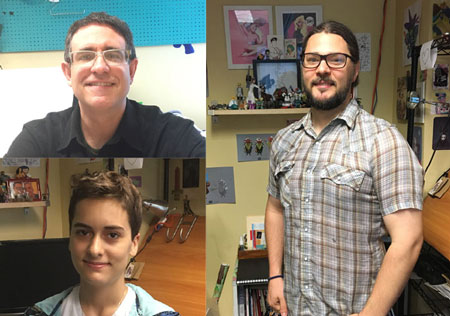
Three more talks with the folks at Helioscope Studio in Portland in this episode!
Steve Lieber, an artist in his own right and also manager of the studio, gives us a brief history of the studio (including its self-naming woes) and tips on how to start your own studio.
Intern/mentee Maria Frantz, a university student and web cartoonist who grew up reading Calvin and Hobbes, explains her internship and the aims of her comics work, and how her generation approaches comics.
Finally, Ben Dewey (Autumnlands, Beasts of Burden) talks about his process of doing art (involving digital pencils and analog watercolors), why you shouldn’t get too fussy over your comics, managing your comics creating time, and what was good about Rob Liefeld’s work.
Podcast: Play in new window | Download
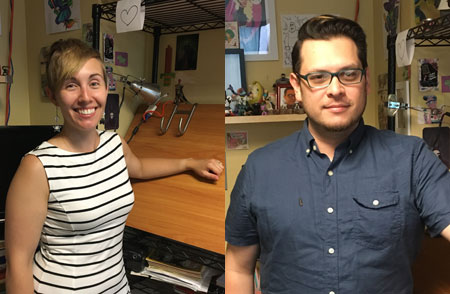
This week, two more creators from Portland’s Helioscope Studio:
Cat Farris is working on “Emily and the Strangers” for Dark Horse, and her own web comic “The Last Diplomat.” She talks about the learning curve of drawing digitally, pacing the revealing of story information, the down side of telling people what she does for a living, and more.
Terry Blas has done covers for such comics titles as Adventure Time and Rick & Morty, and is the co-writer of a forthcoming graphic novel from Oni Press called Morbid Obesity, a murder mystery set at a fat camp. He talks about how to make stories less formulaic and more emotional, and points out a neglected segment of the American comics market.
Podcast: Play in new window | Download

This week we begin our visit with the creators at Helioscope, a comics studio in Portland, Oregon!

Karl Kesel has been in mainstream comics for 30 years and has worked on some of the most popular characters from the Big Two. How has the industry changed in that time, for good and bad? Why is his fingernail always broken? How is inking therapeutic for him?
Then graphic novelist Dylan Meconis (Bite Me!: A Vampire Farce; Family Man; Outfoxed) gives us a lot of thoughts and tips for promoting a comic online, as well as why foxes are thought of as tricksters in numerous cultures, and how we’ll know when comics have really “arrived”.
Podcast: Play in new window | Download
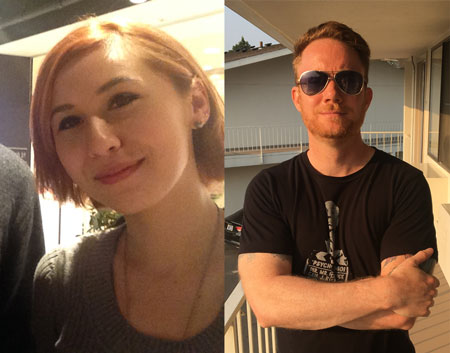
This week, a couple of old friends stop by to give us their thoughts and advice on comics creation.
First, artist Irene Strychalski (Gwenpool) talks about her 10 tips for thumbnailing a comics page. At this stage, your main concern is clear storytelling technique. Listen for some guidelines!
Then, writer Jason McNamara (The Martian Confederacy, The Rattler), now creative consultant for the NBA’s Golden State Warriors, talks about recognizing when a comics collaboration isn’t gelling, and knowing when to let go.
Podcast: Play in new window | Download

This week, Tim presents two interviews from his time in Portland, Oregon!

First, Lacy Davis and Jim Kettner talk about their first graphic novel, Ink in Water: An Illustrated Memoir (Or, How I Kicked Anorexia’s Ass and Embraced Body Positivity), about Lacy’s battles with anorexia. They talk about the process of making the book, the challenges of collaborating with your spouse, and the nature of eating disorders, which have both physical and mental effects.

Then, a front-porch chat with Charles Brownstein, Executive Director of the Comic Book Legal Defense Fund. What is the organization’s mission and how did it come to be based in Portland? What have been its biggest victories and defeats? What’s the difference between censorship by the government or by private companies? The difference between comics that show drawings of kids in sexual situations, versus actual child pornography? Also, the rise and fall of the Comics Code. Were comics EVER really “just for kids”?
Podcast: Play in new window | Download
 This week a look at how creators can cultivate their following into a means of paying (some of) the bills.
This week a look at how creators can cultivate their following into a means of paying (some of) the bills.
Comics artist Lucy Bellwood has a pretty succesful Patreon page; it’s paying her Portland rent. Her fans appreciate her work, but often that’s not quite enough; showing your personality, making a personal connection, can get them to buy in on a deeper level. Lucy talks to Tim about what she’s done to cultivate her following of fans/patrons.
Then Tim is joined by Taryn Arnold, Community Happiness Representative at Patreon, to talk about how Patreon works, the background of the site, and what they’re doing to solve some problems that have arisen — including (as referred to on this podcast more than once) kamikaze patrons who pledge, download all the free content, and unpledge without making any payments.
Pledge at least $3.00 a month to Deconstructing Comics on Patreon and hear Lucy talk about some frustrating, and also rather amazing, experiences she had with freelancing, and on why she got stressed out when she guested on someone else’s web comic!
(If you’d like to know more about using Patreon yourself, here’s some info.)
Podcast: Play in new window | Download